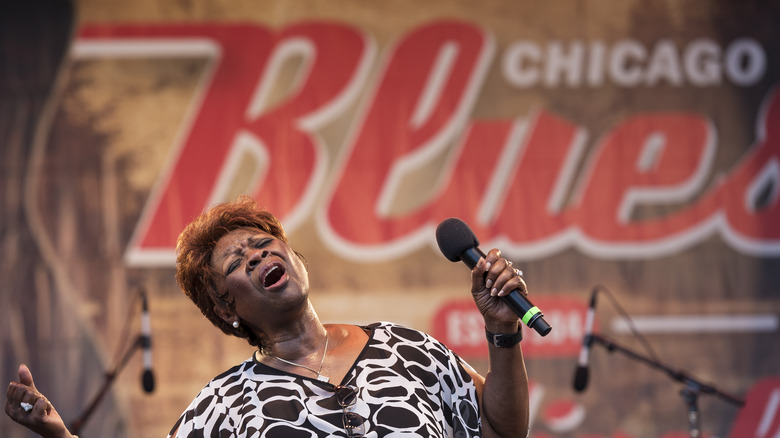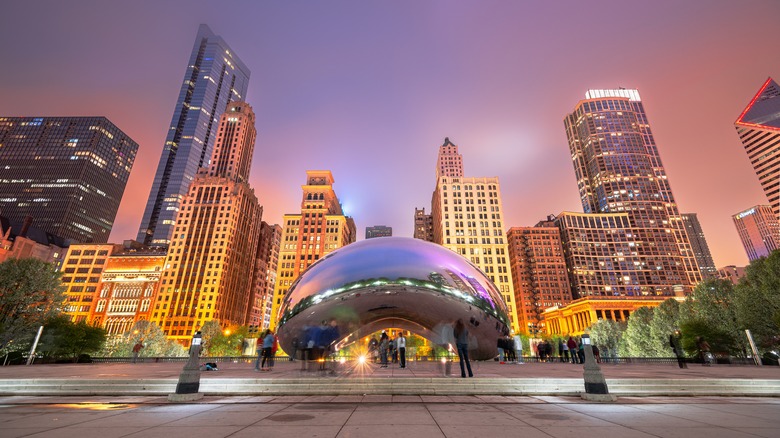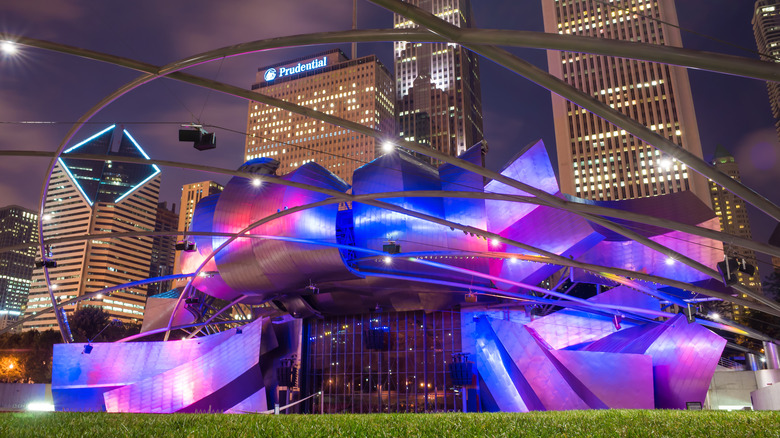Destinations United States
Matt Berry
Although the blues originated in the South, Chicago-styled blues formed as people began fleeing the South as part of the Great Migration. In the industrial city of early 1940s Chicago, traditional blues evolved into Chicago blues, which typically features electric guitars, harmonicas, and a rhythm section of drums and bass. Through this evolution from traditional blues, Chicago has bred some of the world’s greatest blues artists, including Muddy Waters, Bo Diddley, Buddy Guy, and Howlin’ Wolf.
Celebrating its contribution to the legacy of blues, the Chicago Blues Festival is an annual, three-day event held in June in Chicago’s iconic Millennium Park. Each year, the festival welcomes legendary blues players, up-and-coming artists, and local musicians at both the expansive downtown park and popular venues throughout the city. While the festival celebrates the blues genre, Chicago Blues Festival also welcomes diverse lineups to showcase the contribution of blues to other genres. Notable acts have included B.B. King, Ray Charles, Etta James, Buddy Guy, and Mavis Staples.
A city tradition since 1984, Chicago Blues Festival welcomes over 500,000 blues fans each year to Chicago’s beautiful downtown. Not only is it the city’s largest music festival, the Chicago Blues Festival is also totally free to attend.
Celebrate the past and future of Chicago blues

Jack Vartoogian/getty Images/Getty Images
The Chicago Blues Festival is a multi-stage event celebrating Chicago blues and the genre’s rich history. You’ll typically find larger acts at the Jay Pritzker Pavilion. Located in the middle of Millenium Park, Jay Pritzker Pavilion is a 4,000-seat amphitheater with the Great Lawn that holds an additional 7,000 attendees. The Pavilion is near the iconic Cloud Gate sculpture, or the “The Bean.” Seats at the Jay Pritzker Pavilion are available on a first-come, first-served basis, so you’ll need to arrive early to snag Pavilion seats.
However, if you can’t grab seats at the Pavilion, no problem. Most attendees prefer to float throughout the park to catch the acts on all three stages. Celebrating the history of blues, many southern and traditional blues players perform on the Mississippi Juke Joint Stage, which is located on the North Promenade. On the South Promenade, you’ll find the Rosa’s Lounge stage typically showcasing both legends and new artists of Chicago blues each year.
The festival at Millennium Park lasts throughout the afternoon and into the early evening. However, after the festival, many of Chicago’s fabled blues clubs and music venues host notable acts over the weekend. If you head to The Bassment, Blue Chicago, or Buddy Guy’s Legends during the festival, you can hear Chicago-styled blues late into the night.
Experience the vibrant charm of the Loop

Sean Pavone/Shutterstock
While the amazing musicianship, picturesque park, and free attendance are all major draws of the Chicago Blues Festival, its ideal location in the Loop neighborhood makes a trip to Chicago even more worthwhile. The Loop is Chicago’s most walkable neighborhood and home to some of the city’s most popular attractions and landmarks.
When staying in the Loop, you can easily walk to Millenium Park for the festival while immersed in Chicago’s most vibrant neighborhood. In between catching shows, you can have a meal at a waterfront restaurant on the Chicago Riverwalk, take an architecture river cruise, visit the historic Art Institute of Chicago, or shop the over 450 retailers on the famed Magnificent Mile.
The Chicago Blues Festival is a world-famous event that celebrates the legacy and heritage of Chicago-styled blues, and since the festival is held in the middle of downtown Chicago, you’re surrounded by the towering buildings, riverfront charm, and big city buzz that helped mold its unique sound over the decades.

